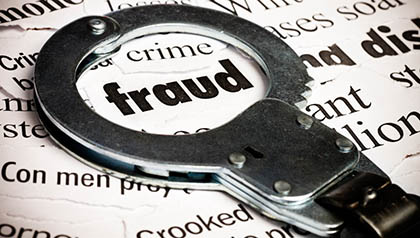AARP Hearing Center

Ted Meyerson, 87, a volunteer for AARP Maryland’s Fraud Watch Network, could vividly recount how scammers have used the fear of COVID-19 to pressure older adults into handing over money. Then it almost happened to him.
Meyerson, of Highland, received his own coronavirus-related bait in March. An email promised he could safely get back to his pre-pandemic life with the first “real over-the-counter test for COVID-19” and provided a “Get My Test” button.
“It didn’t look right to me, so I sent it to someone at the AARP Fraud Watch Network. They got back to me, saying it isn’t legitimate,” Meyerson said.
He has heard complaints about fraudsters offering older people purported miracle cures, preventive drugs and vaccine appointments—for a fee.
These scams exploit potential victims’ anxiety about having to wait for a vaccination. The past year has heightened people’s isolation and made them more susceptible to such pitches.
The Federal Trade Commission’s Consumer Sentinel Network Data Book for 2020 shows that Maryland ranked fourth highest in the nation in fraud complaints per capita, with more than 63,000 last year. Marylanders lost a total of $55.1 million to scams in 2020.
That’s why AARP Maryland has joined with the state attorney general’s office, Consumer Credit Counseling Service of Maryland and Delaware (CCCSMD) and other organizations to sponsor this year’s Protect Week, which begins Monday, June 14.
Getting the word out
The goal is to provide resources to help older residents avoid scams and financial exploitation.
“Criminals tend to be more successful in scamming younger Americans, but when older Americans are targeted, they lose more money,” said Attorney General Brian Frosh (D). “This can be devastating. Seniors can lose their life savings to a scam, and it may be difficult or impossible to recoup that money.”
Most Protect Week programs will be virtual. Helene Raynaud, president of CCCSMD, said events will include telephone town halls and interviews with experts on the latest scams.
County agencies, nonprofits and consumer groups are expected to host events. A telephone town hall, at 10 a.m. on Tuesday, June 15, will focus on types of fraud. You can listen in at 11 a.m. and vekeo.com/aarpmaryland.
Additional town halls will be held on Wednesday, June 16, at 11 a.m., and Friday, June 18, at 10 a.m.
To avoid COVID-19 and other health-related scams, the Better Business Bureau (BBB) recommends that all people know their region’s plans for vaccinations and avoid sharing their Medicare ID number, Social Security number, health plan details or banking information with anyone who is not a trusted confidant.
If you receive an email like the one sent to Meyerson, the BBB suggests making sure its links are from the source it claims to be.
“When in doubt, perform a separate internet search for the website or call the source directly,” the BBB recommends.
Karen Morgan, a Fraud Watch volunteer, said people should not feel ashamed or embarrassed if they were ensnared by a scam.
“It’s not your fault that this happened to you,” said Morgan, 65, of Annapolis. “This is their fault, and they did it to you.”
Visit protectweek.org for more information on Protect Week programs. You can file fraud complaints with the state’s Consumer Protection Division at 410-528-8662.
Jacqueline Neber, a Johns Hopkins graduate, is a writer living in New York.
More on Fraud































































